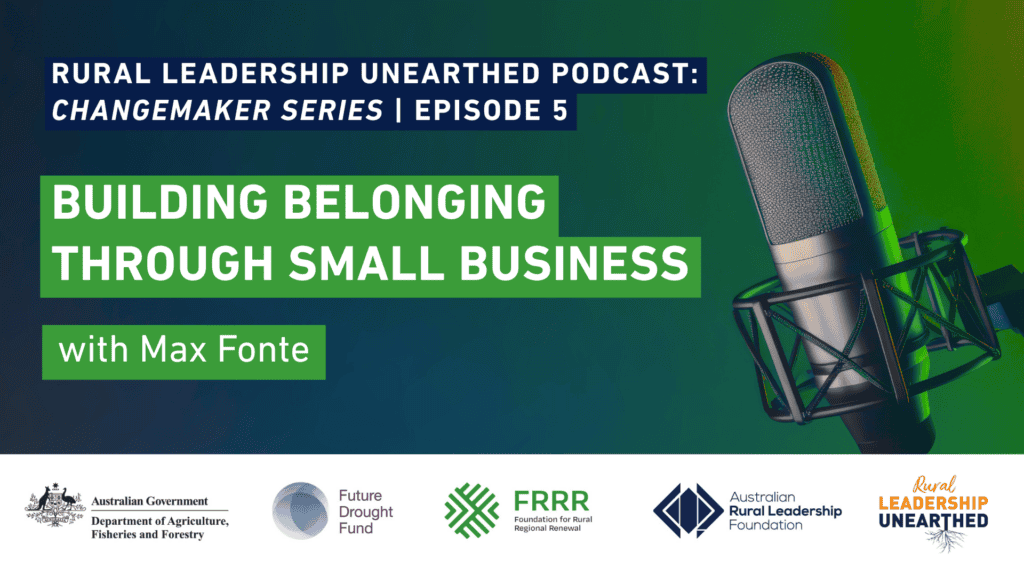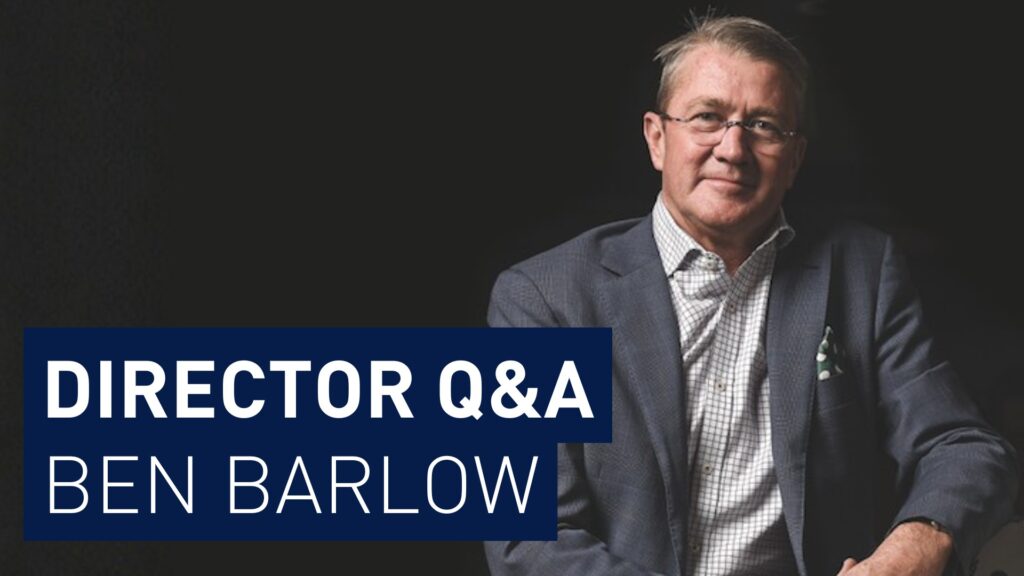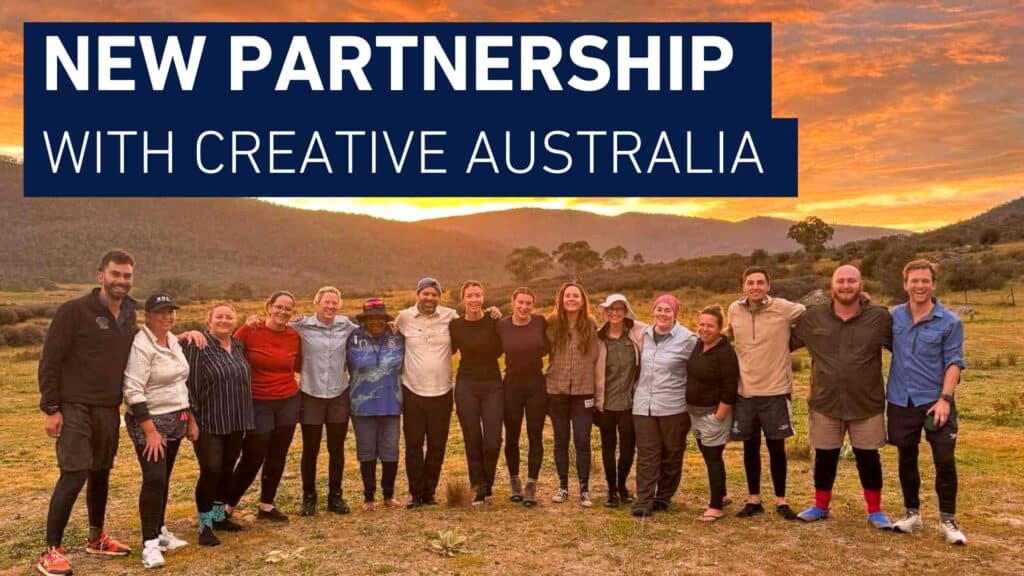A banking career is probably not what Andrew Hannaford had in mind during his younger years, mustering sheep at Goolgumbla Station on achingly cold mornings, fingers frozen and with newspaper stuffed down his front to keep the icy wind at bay.
But that is the career he “fell into” after an early life of Merino sheep and dusty sheepyards, boarding school and studies at the University of New England’s Robb College at Armidale.
Andrew worked with Elders, spending time in the Riverina, Goulburn Valley, and Gippsland, and travelled around Australia with his partner Amy. Then the road took him back to family, Wiradjuri country, and the bustling town of Wagga Wagga (the place of many celebrations).
In his role as the District Manager Southern NSW, Vic and SA with Queensland-based Suncorp Bank, he works with enough rural and regionally based clients to be well aware of the importance of resilience, both in communities and for individuals.
“I’m lucky to live in a great regional area with lots of people looking to do their best for their own families and communities,” Andrew said.
But when seasons are tough and people on the land are forced to apply for carry-on finance just to keep going, he sees the stresses and strains put on all sectors of communities that rely on agriculture to survive and thrive.
He is not alone in making these observations, with finance and business sectors increasingly recognising the importance of qualities like resilience and good leadership.
“They are prepared to invest a percentage of their profit in the health of their employees and communities: it is not only beneficial to business, but also positive in terms of their social licence to operate,” Andrew said.
It was awareness of the importance of resilience in the regions, combined with the desire to broaden his local network outside of farming and business, that led him to the Leading Australian Resilient Communities (LARC) program.
The experience with LARC did indeed broaden his network and provided him with some startling insights along the way. It also provided him with skills he could use in his leadership role in community sports.
“I was genuinely blown away by the local leaders I had the privilege to meet and collaborate with. The experience introduced me to many people in local government and with not-for-profit experience, people that help to lead communities through adversity but also plan and create more resilient communities,” Andrew said.
During the program, Andrew was part of the team that worked on the Bridge the Country/City Digital Divide project, cultivating leadership skills in a practical way.
“The project focused on connectivity in regional and rural areas and the real-world impacts it has on health, education and migration away from regional areas,” he said.
Of particular concern to the group was the way that local Indigenous, migrant, disability, low income and aged communities were negatively affected by the “digital divide”, often unable to access technology that is become more prevalent and crucial in people’s daily lives.
With banking, social security, employment opportunities and education all among the activities that are becoming more dependent on an individual’s access to digital technology and the skills needed to use it, people without either were disadvantaged.
When individuals were unable to fully participate in work or education, or unable to access health and financial services, then the community as a whole suffered—along with its resilience.
The aim was to drive change to ensure that projects impacting the region adequately addressed the need of the expanding digital economy, and enabled access by all.
Several organisations have already contacted the group regarding the project, an indication of its relevance and the need it is meeting.
Coaching equipped the team to meet challenges unique to their individual roles and sectors, and with community resilience as the core focus.
Andrew said the most tangible skill he gained was an appreciation of the importance of listening, and the “true need to hear all voices in a room, big and small.”
As someone who describes himself as gregarious by nature and tending to lead from the front, he had to continue to work on stepping back and allowing others to take the lead, with one of the most tangible skills he learned being the true need to hear voices in a room.
“I can play a role in making sure all are heard in future leadership roles I play a part in,” Andrew said.
“Variety and diversity will always achieve a more positive outcome. From personal heritage and beliefs, to hearing from the quietest individual – without this it all stays the same when we need to be continuously evolving,” he said.
Varying voices enabled the cross-pollination of ideas and experiences from initiatives and projects delivered in other regions, part of the LARC agenda.
Andrew said that working with a new bunch of people on a two-to-three-month project, while still juggling home and work life, made apparent the importance of a clear goal early in the group process.
But the crucial need for timely follow up was one of the main leadership skills the program instilled in Andrew’s mind.
It was important to have action items recorded at the end of calls or meetings, and to resolve uncertainty straight away so no time was wasted, goals achieved, and projects delivered.
During the program, there was an emphasis on “softer” benefits of good leadership, including wellbeing.
“This is increasingly important and, if cultivated, will lead to better outcomes environmentally and financially,” Andrew said.
With the LARC program behind him, Andrew sees community resilience as the shield that a collection of individuals can create to deflect or absorb minor issues that might arise.
He has always been aware of the importance of community groups, like local football clubs, as places and activities which foster community resilience.
“Each community links in with the next, be it the Men’s Shed helping the local preschool or a footy club circling to help the SES in times of real crisis,” Andrew said.
He said the resilience shield was formed from “a genuine community patchwork quilt, if you like”.
However, he saw that the future of such groups was threatened by changes within communities during times of hardship.
“Families can be forced to move away or be split…schools close, sports clubs fold due to lack of numbers.”
Andrew said that these institutions and associations formed the fabric of rural communities and were difficult to restore once gone.
“While a run of great seasons has helped turn this around, communities still need somewhere to share experiences, and continue to build resilience needed for future challenges,” he said.
Andrew said that in terms of future leadership, he saw his role as linking these communities so they could effectively work together to provide communities with comfort, strength, support and resilience.
Through his role with community sporting groups he will be able to use his LARC learnings to help make sure that they are strong and able to form a part of the patchwork that he has recognised as being so important.
Not just for the wellbeing of those that belong to them, but for the health and resilience of the community as a whole.





